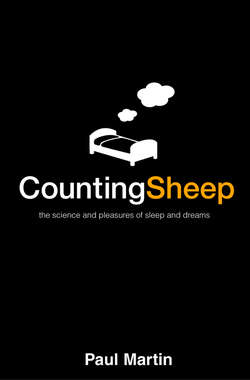Читать книгу Counting Sheep: The Science and Pleasures of Sleep and Dreams - Paul Martin - Страница 19
Sleepy doctors
ОглавлениеThink not, is my eleventh commandment; and sleep when you can, is my twelfth.
Herman Melville, Moby-Dick (1851)
To find the prime example of skilled professionals who routinely perform demanding, safety-critical tasks while severely sleep-deprived we need look no further than medicine. Chronic sleep deprivation is rife among hospital doctors, who are not superhuman enough to be immune from its consequences. Lack of sleep impairs their mood, judgment, decision making, thinking abilities and communication skills just like anyone else. One commentator recently described medical training in the USA as ‘a gruelling endurance test in which patients are often those most at risk’. The situation in the UK is no better.
Just how tired are doctors? According to the research data, some of them are very tired indeed. A study of American physicians undergoing postgraduate medical training illustrates the problem. During a typical 36-hour period of on-call duty, the interns spent less than five hours in bed and slept for an average of less than four hours. That is not enough. Another American study found that three out of four residents in obstetrics and gynaecology were working between 61 and 100 hours a week, and more than two thirds reported getting less than three hours’ sleep while on night call. Perhaps unsurprisingly, a large majority wanted limits placed on their work hours, despite concerns that this might restrict their professional experience. Much the same is true for doctors in other countries. For instance, house officers in Stockholm hospitals were found to sleep for an average of only four hours when on night call.
Three or four hours’ sleep is not enough for most people. Research has shown that doctors who have slept for less than five hours in the previous 24 display significant deteriorations in their memory, intellectual skills, language and numeracy. Doctors working night shifts get less sleep than those on day duty, and their performance is consequently worse. A study at Stanford University found that emergency physicians slept for an average of 6.3 hours after working day shifts, but only 5.2 hours after night shifts. Their performance and mood suffered accordingly: those working nights had slower reaction times and took one third longer to perform a standard medical procedure. Their performance deteriorated during the course of a night shift and they became progressively more likely to make mistakes. They also felt less alert, less motivated, less happy and less clear-thinking than when they were on day shift. Given the choice, any sane patient would want to be treated by a doctor working day shifts.
As we shall see in the next chapter, sleep deprivation has a big impact on tasks requiring sustained concentration and effort. But tired people are often able to perform simple or engaging tasks in short bursts. Sleep-deprived doctors usually cope surprisingly well with brief but invigorating crises. Problems are more likely to arise with routine, repetitive tasks requiring prolonged attention. It might be relevant that the impact of sleep deprivation is found to vary somewhat between the different medical specialities, with surgeons being the least affected.
We will also see in the next chapter that sleep deprivation erodes our mood, motivation, social skills, communication skills, creativity and lateral thinking. Again, doctors are no exception. Psychologists who assessed junior doctors after a night of dealing with emergency admissions found deteriorations in their mood and motivation, as well as the usual impairment in short-term memory. Sleep-deprived doctors also perform significantly worse on measures of creative thinking and originality. They are less capable of solving complex problems that require originality and non-linear thinking, such as diagnosing an unusual condition.
To put icing on the cake, sleep-deprived doctors have an alarming tendency to fall asleep when driving their cars. An American study of paediatricians found that half of them admitted to having fallen asleep while driving, almost always after a night on duty. The on-call doctors notched up substantially more traffic accidents and traffic citations than their faculty colleagues. Their propensity to fall asleep at the wheel was unsurprising, considering they got less than three hours of sleep during on-call nights. So, after unintentionally jeopardising their patients’ lives while on duty in the hospital, sleep-deprived doctors put themselves and other road users at risk while driving home.
